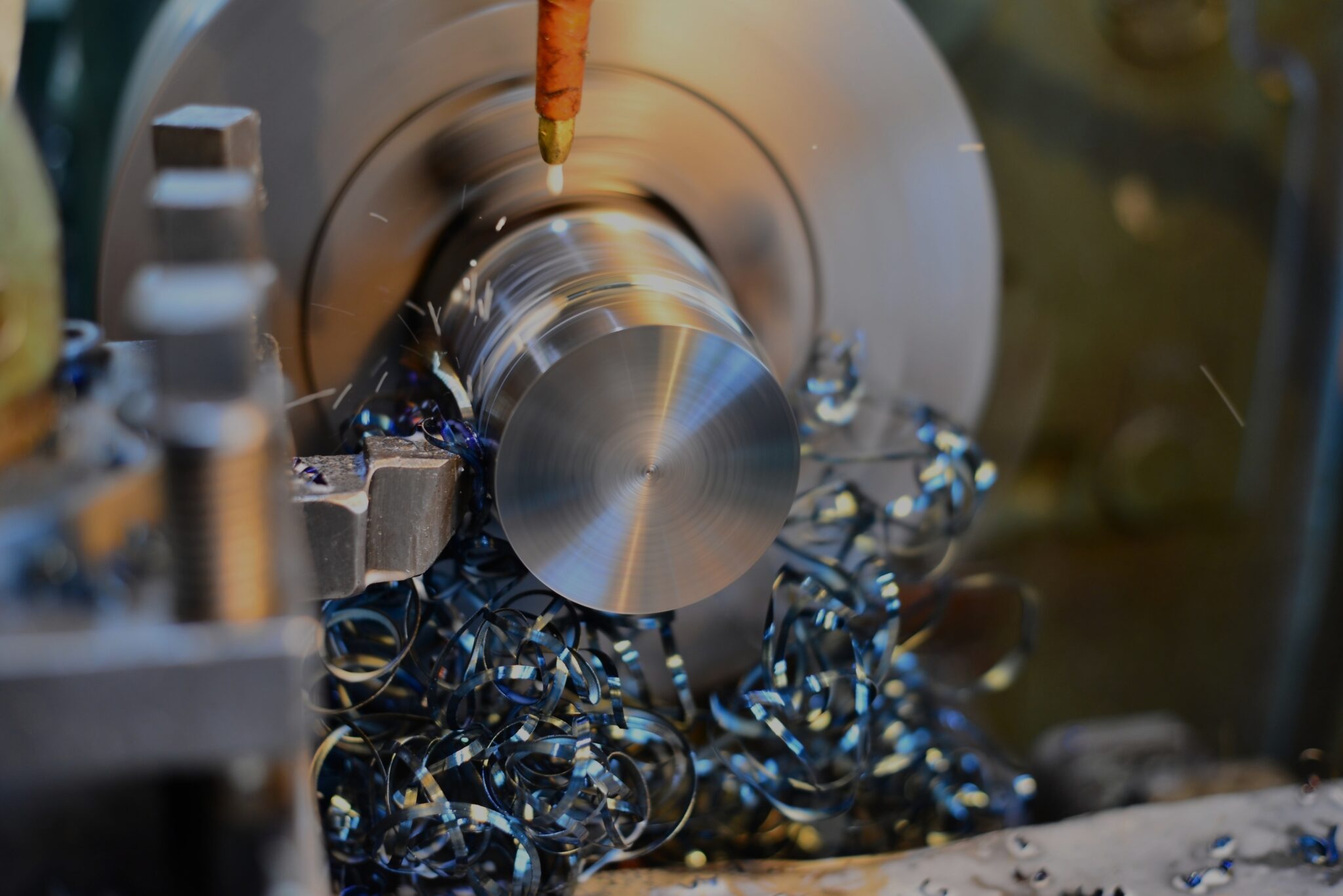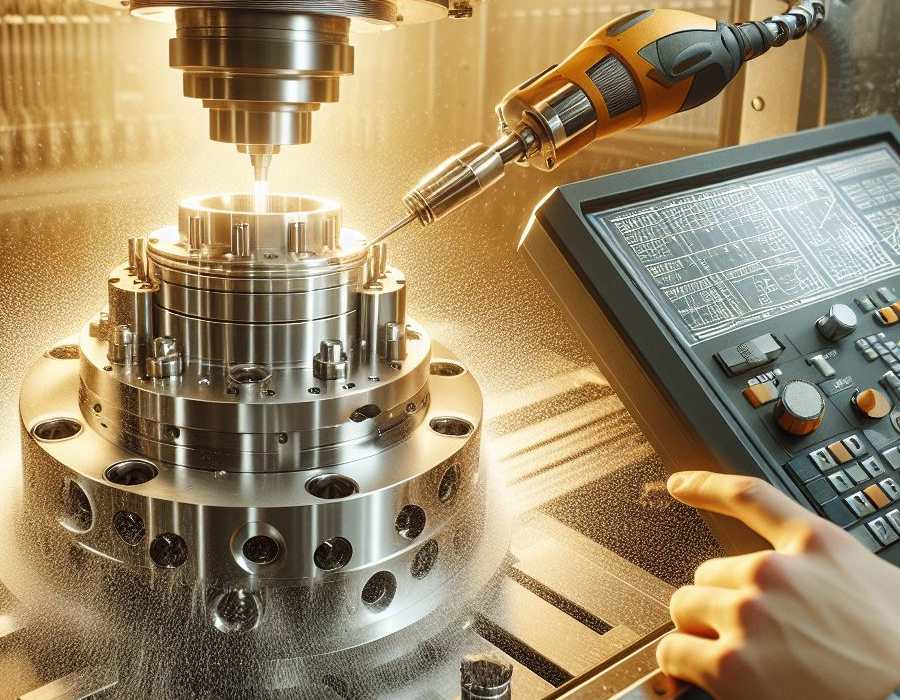A step-by-step guide to implementing fast prototyping in your manufacturing process
Exactly How CNC Machining Providers Improve Efficiency in Milling and Transforming Processes
CNC machining services play an essential role in enhancing efficiency within milling and turning processes. By utilizing automation and exact control, these services lessen human error and assurance regular result. The ability to take care of intricate geometries and keep limited tolerances improves production. Nevertheless, the complete level of CNC modern technology's impact surpasses basic efficiency gains. There are deeper ramifications and future trends that require more expedition.
The Fundamentals of CNC Machining
CNC machining is a precise manufacturing process that makes use of computer-controlled devices to create intricate components and elements. This technology employs computer-aided layout (CAD) software to create detailed designs, which are after that converted right into machine instructions. The procedure usually involves numerous operations such as milling, transforming, and exploration, making it possible for manufacturers to accomplish high levels of accuracy and repeatability.
CNC equipments are equipped with sophisticated tooling that can control materials like timber, metal, and plastic. They run with a series of commands that dictate movements, speeds, and device changes, reducing human mistake and improving production efficiency.
The automation inherent in CNC machining permits complicated geometries and tight resistances to be consistently created, making it a recommended choice in markets calling for accuracy, such as aerospace and vehicle. Understanding the principles of CNC machining is vital for valuing its duty in contemporary production processes.
Benefits of CNC Machining in Milling
CNC machining provides considerable advantages in milling processes, specifically regarding precision and accuracy. This innovation not just enhances production rate however likewise enables the production of complicated designs that would be challenging to attain by hand. Therefore, organizations can improve effectiveness and increase their abilities in manufacturing.
Precision and Accuracy
Accomplishing unequaled precision and accuracy in milling processes is a hallmark of sophisticated machining strategies. CNC machining services utilize computer-controlled systems that thoroughly carry out styles with very little human intervention. This automation guarantees that each cut and shape is performed to exact specifications, significantly lowering the threat of mistakes generally linked with hands-on milling. The capacity to generate intricate geometries with limited resistances is a vital advantage, allowing manufacturers to fulfill rigorous top quality needs. Furthermore, CNC machines can maintain consistent performance across numerous runs, assuring uniformity in production. This level of accuracy not just boosts product quality but additionally lowers material waste, causing much more efficient usage of sources. In general, CNC machining services change milling processes through their dedication to precision and information.
Boosted Production Rate
Accelerating production speed is among the standout advantages of contemporary machining services. CNC machining substantially lowers the time needed for milling procedures by automating procedures and lessening hand-operated treatment. Devices can run continually, enabling for raised outcome without giving up high quality. The capability to program several jobs right into a single configuration even more simplifies production, making it possible for producers to total complicated tasks in much less time. Additionally, CNC makers maintain high-speed reducing capabilities, causing quicker product elimination and faster cycle times. This enhanced efficiency translates to shorter lead times, enabling firms to react quickly to market needs. Overall, increased production rate with CNC machining not just increases efficiency but also enhances competitive benefit in the manufacturing sector.
Complex Layout Abilities
The capacity to develop elaborate layouts is a significant advantage of contemporary machining solutions. CNC machining permits the production of intricate geometries that would be difficult, if not difficult, to achieve using typical techniques. This capability originates from advanced programs and automated tools that specifically comply with electronic plans, ensuring precision and repeatability. Because of this, suppliers can create detailed get rid of limited tolerances, maximizing performance in various applications. Additionally, the adaptability of CNC makers enables fast adjustments to design specifications without substantial retooling, streamlining the manufacturing process. This versatility not only enhances creativity in layout yet additionally permits reliable experimentation and innovation, giving companies an one-upmanship in the ever-evolving market.

Advantages of CNC Transforming Procedures
CNC turning processes provide substantial benefits in manufacturing, specifically concerning accuracy and accuracy. These procedures permit the production of extremely detailed components with very little tolerances, ensuring high quality in manufacturing. Additionally, the efficiency of CNC transforming adds to decreased lead times, allowing much faster delivery of completed products.
Precision and Accuracy
Precision and accuracy are characteristic qualities of CNC turning processes, establishing them apart in the production landscape. These processes make use of computer numerical control to lead cutting tools with unmatched exactness. This results in elements that satisfy rigid requirements and tolerances, minimizing check my source the likelihood of errors. CNC transforming permits consistent and repeatable production, making sure that each component is virtually the same, which is crucial in industries requiring high standards, such as aerospace and clinical devices - cnc milling services near me. Furthermore, progressed software application and modern technology allow real-time changes during machining, improving total top quality. By decreasing human mistake and making the most of control over the manufacturing process, CNC turning services provide remarkable accuracy and accuracy, making them a necessary option for contemporary manufacturing requirements
Reduced Lead Times
Decreased preparations are a considerable advantage of CNC turning processes, stemming from their capability to maximize and automate manufacturing. CNC transforming equipments run with high efficiency, enabling quick setup and execution of multiple jobs without the demand for extensive hands-on intervention. This automation reduces downtime and accelerates the manufacturing procedure, making it possible for quicker turn-around for orders. Additionally, CNC modern technology enhances uniformity and minimizes mistakes, which better contributes to faster production cycles. As an outcome, businesses can satisfy limited due dates and react quickly to market needs. By leveraging CNC turning processes, companies can simplify process, enhance source allotment, and eventually enhance their one-upmanship via reduced preparations.
Precision and Accuracy in Manufacturing
While manufacturing procedures have evolved considerably over the years, the relevance of precision and precision continues to be vital. In CNC machining, these two elements are crucial to creating high-grade components that meet precise specs. The integration of advanced computer modern technology permits meticulous control over machining parameters, ensuring that components are crafted with marginal discrepancy from designated designs.
Accuracy in making refers to the repeatability of processes, while precision denotes exactly how closely a finished component lines up with pop over to this web-site its designated dimensions. CNC equipments make use of innovative software application and tools that enable suppliers to achieve both, visibly decreasing the margin for mistake - cnc turning service. This ability is particularly crucial in industries such as aerospace, automobile, and clinical, where even small inaccuracies can result in catastrophic failures

Minimizing Lead Times With CNC Technology
CNC technology speeds up production timelines by improving the machining procedure. By automating tasks, CNC makers reduce manual treatment, greatly minimizing the time required for arrangement and procedure. This efficiency allows producers to respond swiftly to market needs, fulfilling orders much faster than traditional machining approaches allow.
Additionally, CNC innovation provides quick prototyping capacities, permitting fast versions and modifications based upon client comments. The accuracy of CNC machining makes certain that parts are produced properly the initial time, decreasing the chance of pricey errors and rework.
Additionally, advanced organizing and shows capacities maximize process, allowing several operations to run simultaneously. This assimilation of technology not only reduces lead times but additionally improves overall efficiency. Ultimately, the fostering of CNC machining solutions furnishes makers with the tools required to satisfy tight target dates while maintaining premium requirements in manufacturing.
The Future of CNC Machining in Market
As makers significantly adopt CNC innovation to improve processes and minimize lead times, the future of CNC machining in market shows up appealing. Developments such as artificial intelligence and artificial intelligence are set to revolutionize the capacities of CNC equipments, boosting their accuracy and adaptability. These improvements will facilitate real-time surveillance and predictive upkeep, lessening downtime and optimizing production performance.
Additionally, the integration of Net of Things (IoT) modern technologies will enable much better data collection and analysis, permitting makers to make informed decisions that further improve operational effectiveness. The increase of additive production alongside CNC machining is anticipated to enhance conventional techniques, offering better design versatility and product performance.
Additionally, as sustainability ends up being a top priority, CNC machining is evolving to integrate eco-friendly methods, which will bring in environmentally conscious consumers. Overall, the future of CNC machining is defined by constant innovation and adaptation, positioning it as a foundation of modern-day manufacturing.
Often Asked Concerns
What Materials Work With CNC Machining Providers?
CNC machining solutions are suitable with numerous products, consisting of steels like steel, aluminum, and titanium, as well as plastics such as acrylic and polycarbonate. Wood and composites also suit CNC processes for diverse applications.
How Does CNC Machining Contrast to Traditional Machining Approaches?
CNC machining supplies greater consistency, precision, and automation contrasted to typical approaches. It lowers human error, boosts production speed, and permits intricate styles, making it a remarkable option in modern production settings.
What Industries Advantage the Many From CNC Machining Services?
The aerospace, automotive, clinical, and electronics sectors profit significantly from CNC machining services. These fields utilize precision, speed, and modification to improve a knockout post product top quality while lowering manufacturing expenses and time, ultimately boosting general functional effectiveness.
Can CNC Machines Manage Complicated Geometries and Layouts?
CNC makers are adept at taking care of complex geometries and layouts, enabling accuracy and intricate describing. Their advanced programs capacities allow suppliers to produce parts with high accuracy, conference varied industry demands and boosting product capability.
What Is the Typical Expense Array for CNC Machining Services?
The common expense range for CNC machining services differs extensively, typically dropping in between $50 to $150 per hour, depending on elements such as product, intricacy, volume, and the particular machining procedures used.
CNC machining is a precise manufacturing procedure that makes use of computer-controlled machines to produce complex components and parts. CNC machining offers substantial advantages in milling processes, especially relating to accuracy and precision. CNC machining greatly reduces the time required for grating procedures by automating procedures and decreasing hand-operated treatment. CNC technology accelerates production timelines by improving the machining process. As producers significantly take on CNC technology to streamline processes and reduce lead times, the future of CNC machining in industry appears promising.